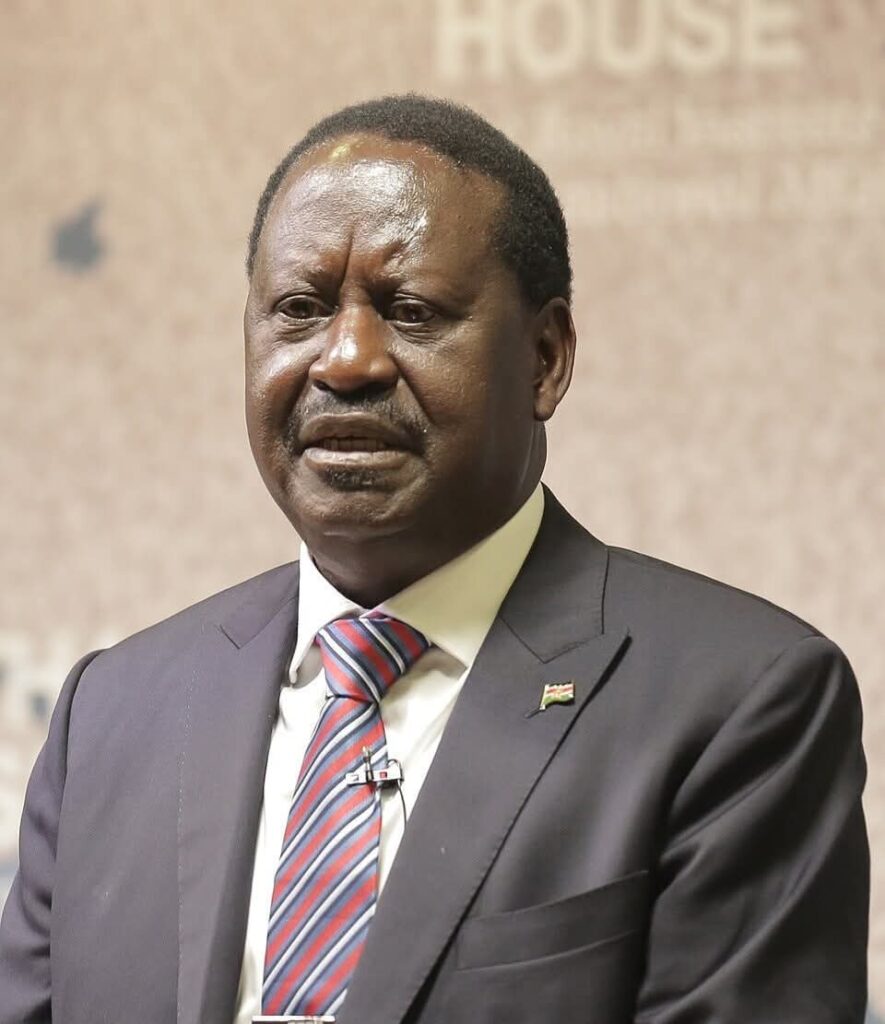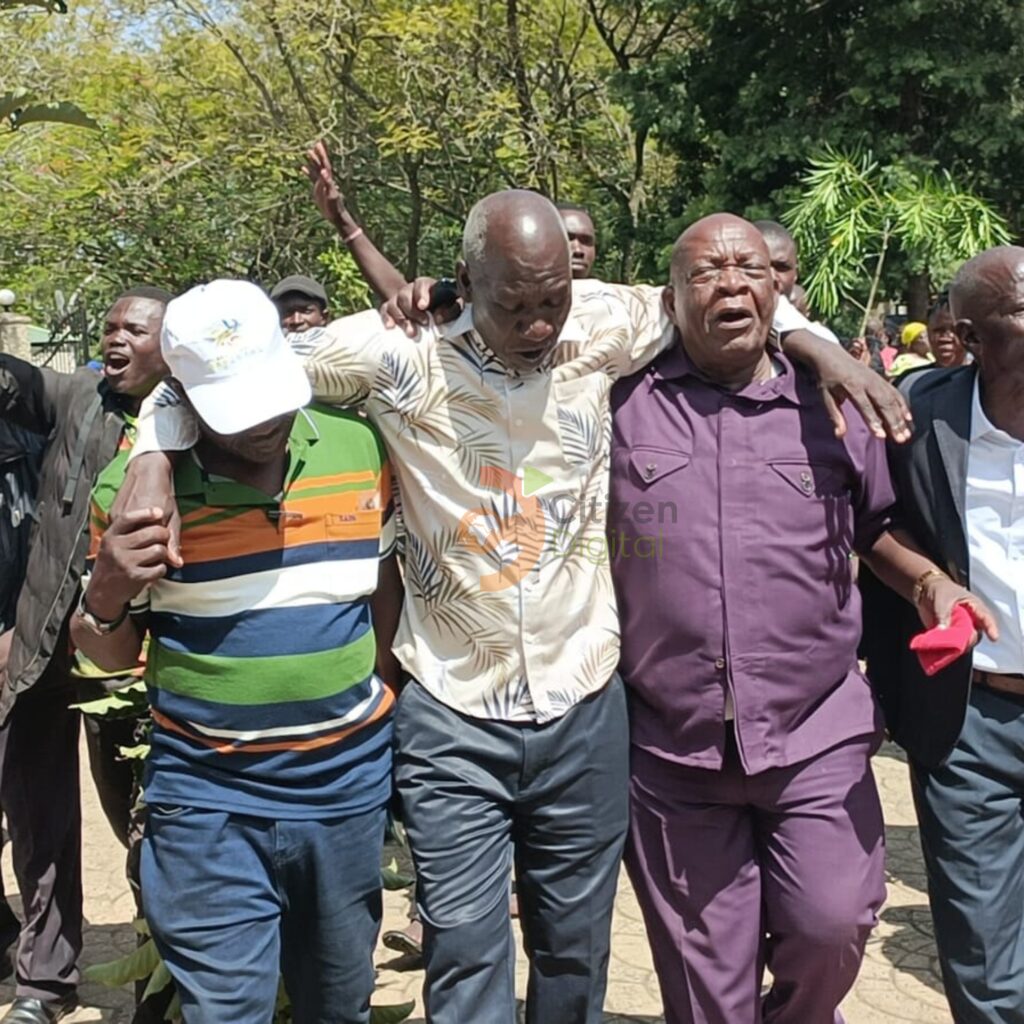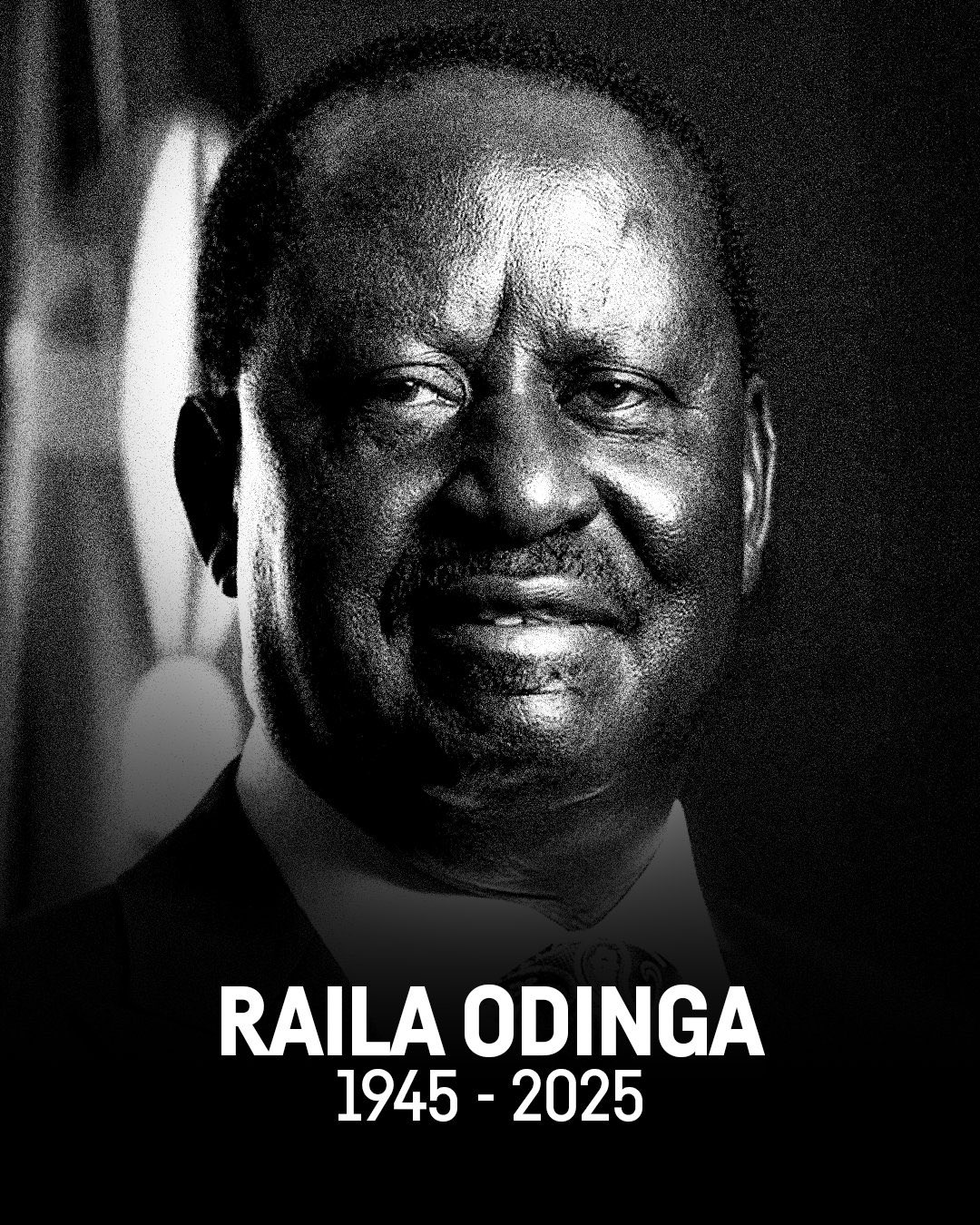Mekelle/Tel Aviv/Nairobi/Pretoria/London
Raila Odinga, Kenya’s veteran opposition leader and champion of democracy, dies aged 80
Nairobi, 15 October 2025
By Chekole Alemu
Raila Odinga, one of Africa’s most enduring political figures and a towering presence in Kenya’s decades-long struggle for democracy, has died aged 80 while receiving medical treatment in India.
Odinga, a former prime minister and five-time presidential contender, was pronounced dead on Tuesday morning in the southern Indian state of Kerala after reportedly suffering a cardiac arrest during a morning walk, according to family and hospital sources. His death was later confirmed by officials from his Orange Democratic Movement (ODM) party and the Kenyan government.
A son of Jaramogi Oginga Odinga one of Kenya’s founding fathers who fought alongside Jomo Kenyatta in the struggle for independence from British colonial rule and later served as the country’s first vice-president Raila Odinga inherited a powerful political legacy. Over decades, he built upon it to become the face of Kenya’s push for democracy, reform, and social justice.
Detained without trial for nearly a decade under the regime of Daniel arap Moi, Odinga emerged from political repression to become one of Kenya’s most influential and controversial figures a man revered by his supporters as “Baba” (“father”) and criticized by detractors for his uncompromising political style.

From prisoner to prime minister
Odinga’s political journey mirrored Kenya’s own democratic evolution. In the late 1980s and early 1990s, he was a key figure in the movement that pushed for multiparty democracy, enduring imprisonment and exile for his role in opposing one-party rule.
Following the disputed 2007 election that plunged Kenya into weeks of deadly violence, Odinga entered into a historic power-sharing agreement with then-President Mwai Kibaki. The deal, brokered by former UN Secretary-General Kofi Annan, saw Odinga appointed as prime minister a role in which he was credited with helping stabilize the country and oversee the drafting of the 2010 Constitution.
The new Constitution, hailed as one of Africa’s most progressive, introduced devolution and stronger checks on executive power reforms Odinga championed as essential to healing Kenya’s ethnic and political divisions.
The “Handshake” and the politics of peace
In 2018, after years of bitter rivalry with President Uhuru Kenyatta, Odinga stunned the nation by publicly reconciling with his former opponent in what became known as “the Handshake.” The moment symbolized peace and unity after yet another contested election, though it also drew criticism from some allies who saw it as a betrayal of opposition ideals.
Despite five unsuccessful presidential bids most recently in 2022, when he lost narrowly to William Ruto Odinga remained a central force in Kenya’s political life, his ability to mobilize crowds and articulate the grievances of ordinary citizens unmatched in the country’s post-independence history.
Condolences pour in
Tributes have poured in from across the region and the world. President William Ruto described Odinga as “a steadfast patriot who devoted his life to the service of the nation,” while former President Uhuru Kenyatta called him “a statesman whose courage and resilience reshaped Kenya’s destiny.”
In a message shared on his verified X account, Ethiopian Prime Minister Abiy Ahmed Ali wrote:
“On behalf of the Government of Ethiopia, I extend my sincere condolences on the passing of former Kenyan Prime Minister Raila Odinga. May he Rest In Peace.”
Regional leaders from Tanzania, Uganda, South Africa, and Nigeria also expressed their sympathies, calling Odinga a pan-Africanist who fought for democracy not only in Kenya but across the continent.
International reactions
The death of Raila Odinga has reverberated far beyond Kenya’s borders, with African and global institutions hailing his lifelong contribution to democratic governance and social justice.
Dr Workneh Gebeyehu, Executive Secretary of the Intergovernmental Authority on Development (IGAD), wrote on X:
“Today, Africa mourns the loss of one of its most iconic sons, H.E. Raila Amolo Odinga.
An unwavering Pan-Africanist, he dedicated his life to the pursuit of democracy, justice, and unity. His lifelong struggle for freedom and equality inspired generations across Kenya and beyond, reminding us that leadership is not about power, but about service and sacrifice.
IGAD stands with the people and Government of Kenya in this moment of profound sorrow. His legacy will forever echo in the democratic foundations he helped build and in the enduring hope he instilled across our continent.
May his soul rest in eternal peace, and may his example continue to guide us toward a freer and more united Africa.”
The African Union Commission issued a statement mourning Odinga, praising his “unwavering belief in the ideals of African unity, democratic reform, and people-centred governance.” AU Chairperson Moussa Faki Mahamat described him as “a relentless advocate for justice and inclusion whose contributions to the continent’s democratic transformation will endure.”
At the United Nations, Secretary-General António Guterres paid tribute to Odinga’s “immense role in peace-building and reconciliation,” recalling his contribution to the post-election mediation in Kenya and his later work as the AU’s High Representative for Infrastructure Development.
Ugandan President Yoweri Museveni, Tanzanian President Samia Suluhu Hassan, and South African President Cyril Ramaphosa each expressed condolences, praising Odinga’s steadfastness and describing him as “a statesman whose courage crossed borders.”
A legacy of struggle and unfinished dreams
In his home region of Nyanza, thousands gathered to mourn a man they saw not only as a political leader but as a symbol of perseverance. “He never gave up on Kenya,” said a local elder in Kisumu. “He fought for us when few dared to speak.”
Odinga’s death leaves a profound void in Kenya’s political landscape. For more than four decades, he defined and often disrupted the country’s political order challenging presidents, building coalitions, and redefining what it meant to be in opposition.
Even in death, Raila Odinga’s legacy defies simple definition. To some, he was the consummate reformer who refused to compromise his principles; to others, an eternal candidate whose ambitions often outpaced his opportunities.
But few would dispute his impact. He helped steer Kenya through its darkest crises, gave voice to its most marginalized, and left behind institutions notably the 2010 Constitution that will long outlive him.

As Kenya prepares for days of national mourning, flags fly at half-mast across the country. His political journey, fraught yet transformative, has come to an end but the struggle for justice and democracy that defined his life continues in the movement he built.
“Raila Odinga was not just a politician,” said one Nairobi mourner. “He was an idea that Kenya could always be better.”






